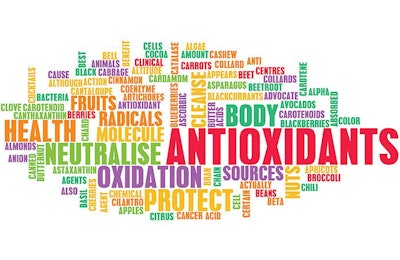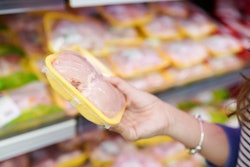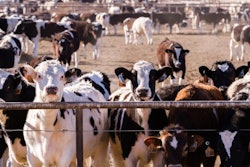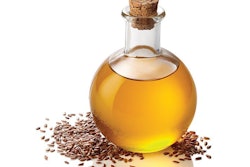
Optimal distribution throughout the body, high digestibility and high bioavailability of feed additives are important.
Because some of the effects of heat stress on poultry are not reversible, prevention is key to maintaining good health, according to Soheil Varasteh, global product manager, nutritional solutions at Trouw Nutrition.
Varasteh presented as part of the International Production & Processing Expo Marketplace.
In particular, he said, birds are more susceptible to heat stress because they don’t have sweat glands.
“They are selected genetically for high performance and therefore they have high metabolic activity, and they are producing lots of internal heat as well as what they experience from the environment,” he said. “Normally, they are living in dense populations and other stress factors such as transportation and vaccination can add to the experience from heat stress.”
Signs of heat stress in poultry include panting, lower feed intake, lower average daily gain, higher feed conversion ratio, lower egg production, reduced eggshell quality and depression.
At the molecular level, heat stress can result in free radical generation, damage to the cells and organelles, intestinal barrier damage and penetration of pathogens and bacteria, microbiota imbalance and immune challenges, and electrolyte imbalance.
Feed additives can be used to prevent heat stress by focusing on antioxidant balance, intestinal integrity, osmolyte balance, electrolyte balance and water intake.
Antioxidants “are majorly important in preserving the homeostasis during heat stress,” he said, but not all antioxidants work the same way. Optimal distribution throughout the body, high digestibility and high bioavailability are important.
“These antioxidants should be able to go through and distribute all over the body in all the lipid structures and water-based structures because free radicals due to heat stress are distributed all over the body,” he said.
Vitamin E and polyphenols are known to have antioxidant effects and high bioavailability, but Varasteh pointed out that there is a limit to how much vitamin E can be absorbed, so higher dosages do not equal extra antioxidant effects.
In addition to antioxidants, it is also important to preserve birds’ gut integrity because “a disruption of intestinal integrity leads to more complex problems later on,” Varasteh said.
Lastly, he said, balancing electrolytes and blood pH, controlling stress hormones, and increasing water intake are also important in reducing adverse effects of heat stress.














